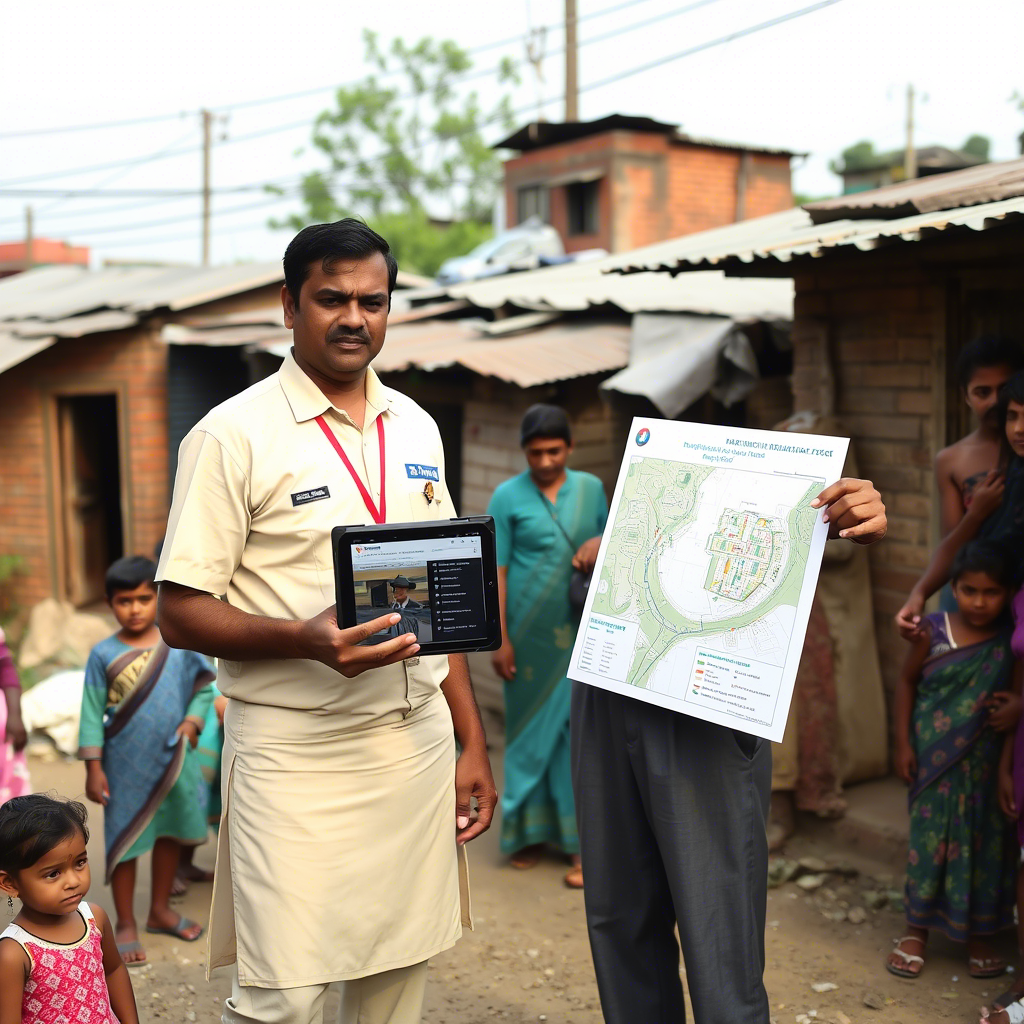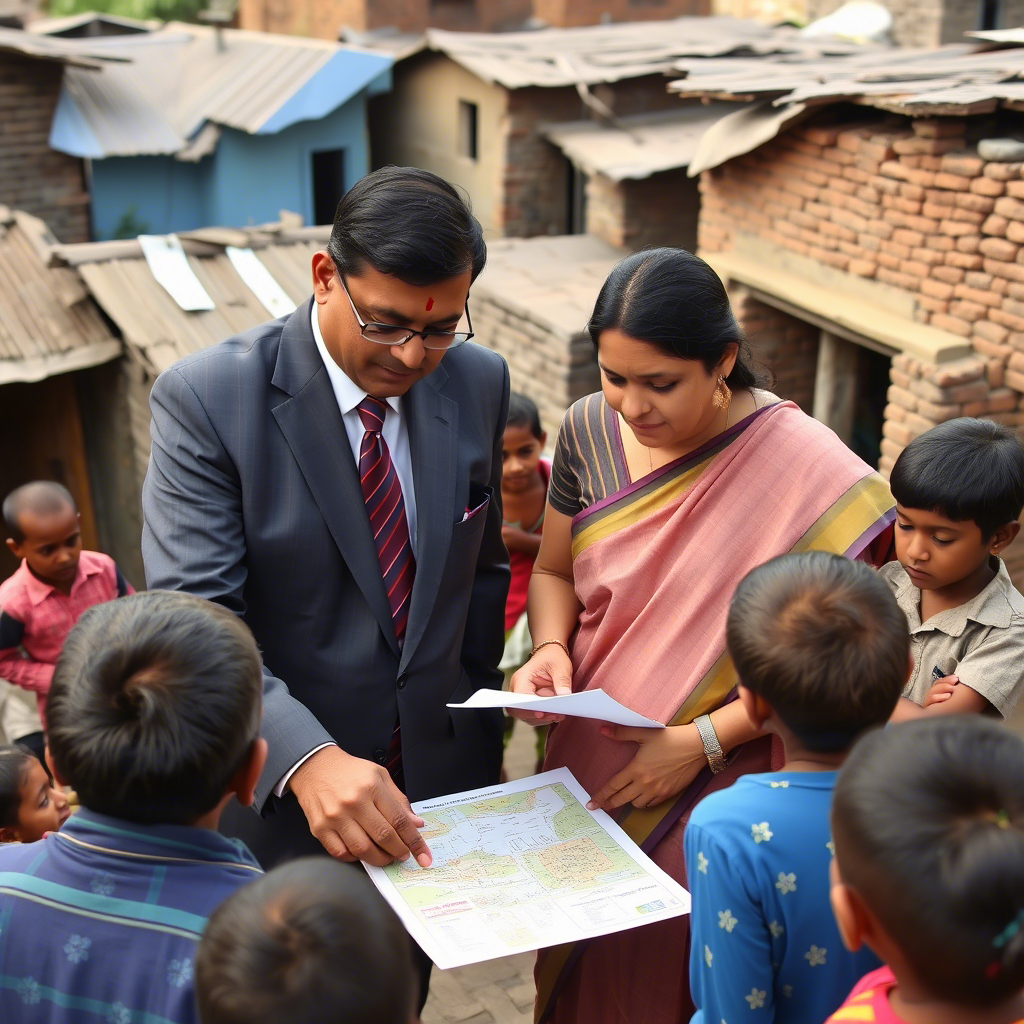Slum rehabilitation in the context of urban sustainability Mumbai, India
Introduction
In recent years, India has witnessed unprecedented urbanization due to the mass migration of people from rural areas and small towns to metropolitan cities. This influx has led to a significant strain on urban infrastructure, resulting in environmental degradation and challenges to sustainable development. Among the most pressing issues arising from this urbanization is the proliferation of slums, which are often characterized by overcrowding, inadequate access to basic amenities, and poor living conditions. These informal settlements have become a major concern for policymakers, as they hinder the overall progress of cities like Mumbai, Pune, Bangalore, Hyderabad, Delhi, and Chennai. To address these challenges, slum rehabilitation has emerged as a critical strategy to improve urban sustainability while ensuring equitable development. This article explores the importance of slum rehabilitation, its impact on urban environments, and ongoing efforts to create livable cities through case studies and initiatives.

Section 1: Understanding the Challenges Posed by Slums
The Urbanization Dilemma
India’s rapid economic growth over the past two decades has attracted millions of people to its metropolitan cities in search of better livelihoods. However, this migration has exacerbated existing urban problems, including housing shortages, traffic congestion, pollution, and insufficient public services. Slums, which house a significant portion of the urban population, are at the heart of these challenges. For instance, in Mumbai—the financial capital of India—approximately 60% of the city’s population resides in slums that occupy only 6% of the total land area (CBC, 2006). Such disparities highlight the urgent need for effective slum rehabilitation programs .
Key Issues Faced by Slum Dwellers
Slum dwellers face numerous hardships, including:
- Inadequate Housing: Most slum structures are poorly built and lack proper ventilation, sanitation, and water supply.
- Health Risks: Overcrowded living conditions contribute to the spread of diseases, while limited access to healthcare facilities worsens the situation.
- Safety Concerns: Many slums are located in hazardous areas prone to flooding or landslides, putting residents at constant risk.
- Transportation Bottlenecks: The sprawling nature of slums disrupts urban planning and creates bottlenecks in transportation networks.
These issues underscore the importance of addressing slum-related problems through comprehensive rehabilitation strategies.
Section 2: The Role of Slum Rehabilitation in Urban Sustainability
What is Slum Rehabilitation?
Slum rehabilitation refers to the process of upgrading informal settlements to provide improved living conditions for their inhabitants. This typically involves relocating residents to new housing projects, providing essential services such as clean water and electricity, and integrating slum areas into the broader urban fabric. Successful rehabilitation not only enhances the quality of life for slum dwellers but also contributes to the overall sustainability of cities.
Benefits of Slum Rehabilitation
- Environmental Improvement: By replacing dilapidated structures with modern housing, rehabilitation reduces waste accumulation and promotes cleaner surroundings.
- Social Equity: It ensures that marginalized communities gain access to basic amenities and opportunities for upward mobility.
- Economic Growth: Upgraded neighbourhoods attract investments, stimulate local economies, and reduce crime rates.
- Urban Resilience: Well-planned rehabilitation projects make cities more resilient to climate change and natural disasters.
For example, in Mumbai, several government-led initiatives aim to transform slums into vibrant, self-sustaining communities. These efforts align with global goals for sustainable urban development outlined by organizations such as the United Nations and the World Bank.
Section 3: Case Study – Mumbai’s Efforts Towards Slum Rehabilitation
A City Under Pressure
Mumbai, one of India’s largest metropolitan regions, serves as a microcosm of the country’s urban challenges. With a population exceeding 20 million, the city struggles to accommodate its growing number of residents, many of whom live in sprawling slums. Since the 1980s, the unchecked expansion of slums has posed significant obstacles to achieving urban sustainability. Despite various interventions by governmental and non-governmental organizations, fragmented approaches have hindered progress.
Notable Rehabilitation Projects
One of the flagship initiatives in Mumbai is the Slum Rehabilitation Authority (SRA) program, which incentivizes private developers to construct free housing for slum dwellers in exchange for additional Floor Space Index (FSI). This model has successfully relocated thousands of families to safer and more dignified living environments. Additionally, international agencies like the World Bank have funded projects aimed at improving land transport, education, and healthcare systems in Mumbai. These initiatives collectively aim to uplift slum communities while fostering sustainable urban growth.
Lessons Learned
While Mumbai’s rehabilitation efforts have shown promise, they also reveal important lessons:
- Community Participation: Engaging slum dwellers in decision-making processes ensures that solutions meet their actual needs.
- Holistic Planning: Addressing interconnected issues such as employment, education, and healthcare is crucial for long-term success.
- Coordination Among Stakeholders: Collaboration between government bodies, NGOs, and private entities can amplify the impact of rehabilitation programs.
Section 4: The Path Forward – Achieving Sustainable Urbanization
A Holistic Approach to Development
To maintain the pace of sustainable urbanization, it is imperative to adopt a holistic approach that integrates social, economic, and environmental dimensions. Researchers emphasize the need for policies that prioritize affordable housing, green spaces, and efficient public transportation systems. Moreover, leveraging technology can enhance data-driven decision-making and optimize resource allocation in slum rehabilitation projects.

Global Support for Indian Cities
International organizations continue to play a pivotal role in supporting India’s urban transformation. For instance, the World Bank’s Sustainable Urban Development Program focuses on improving infrastructure and service delivery in Indian cities. Similarly, partnerships with UN-Habitat promote inclusive urban planning practices that benefit marginalized groups.
Conclusion
As India strives to balance urbanization with sustainability, slum rehabilitation remains a cornerstone of its developmental agenda. By addressing the root causes of slum formation and implementing innovative solutions, cities like Mumbai can pave the way for a brighter future. Ultimately, the success of these initiatives depends on collective action, sustained funding, and unwavering commitment from all stakeholders involved.
